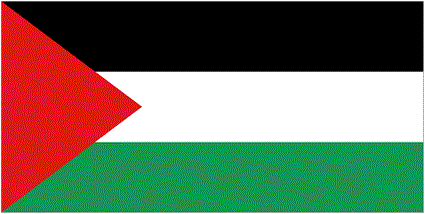December 13, 2017
Jewish occupation of Palestine 1917 - 2017

Since the 1917 Balfour Declaration - a public statement issued by the British government during World War I, announcing support for the establishment of a "national home for the Jewish people" in Palestine - a never-ending struggle for Palestinian statehood on Israeli occupied lands - with Jerusalem as the focal point - has continued unabated. Moreover, according to Yeshoshua Ben-Arich, a historical geographer at Hebrew University, it was the British who considered Jerusalem so important.
“They (the British) are the ones who established Jerusalem as a capital ... Before, it was not anyone's capital since the times of the First and Second Temples.”
This is a conflict that dominates, not only world news coverage, but the blood and treasure of the indigenous people of the area, and other nations which attempt to influence the outcome of the struggle, according to their own interests – which are often anathema to the interests of the majority of people who actually live in the region.
Chief among these “other nations” is, of course, the United States, which supports Israel with billions of dollars in aid on a yearly basis, not to mention keeping it equipped with state-of-the-art military equipment.
When British Foreign Secretary Arthur Balfour wrote the letter to Lord Walter Rothschild on November 2, 1917, on behalf of his Majesty's Government conveying sympathy with “Jewish Zionist aspirations” which Foreign Secretary Balfour said had been submitted to and approved by the Cabinet, he and the British government of the day may not have been motivated by “Jewish Zionist aspirations” after all.
In his book, The Pity of it All, Israeli historian Amos Elon suggests that the 1917 Balfour Declaration was at least partially motivated by the British government’s desire to win the support of pro-German Jewish- American bankers so that they would help push the USA into the war.
In 1916, the British were facing defeat in World War I and desperately needed U.S. help. The Zionists promised to deliver American muscle in exchange for the 1917 Balfour Declaration that promised a Zionist state in Palestine.
Moreover, although the United States entered the war on the British side - with J.P. Morgan as the principal financier of the war effort - the National City Bank, which worked with J.P. Morgan in financing the French and the British, continued to finance the Germans and so did the Chase Bank.
On page four of his book Great Britain, The Jews and Palestine (1936), Samuel Landman, editor of The Zionist and Secretary of the Zionist Council of the United Kingdom, indicated that the Balfour Declaration was motivated by political expediency, not altruism.
“Sir Mark Sykes, Under Secretary to the War Cabinet, and afterwards Monsieur Georges Picot, of the French Embassy in London, and Monsieur Goût of the Quai d'Orsay (Eastern Section), believed that the best way to induce Woodrow Wilson to enter the war in 1917 was “to enlist and mobilize the hitherto unsuspectingly powerful forces of Zionist Jews in America and elsewhere in favour of the Allies on a quid pro quo contract basis...
“The Balfour Declaration of 1917 was but the public confirmation of a necessarily secret 'gentleman's' agreement of 1916 ... and not merely a voluntary, altruistic and romantic gesture on the part of Great Britain..."
While banks have always been the beneficiaries of war because the debt created by banks results in large profits for big finance; and because wars have been used to open countries to U.S. corporate and banking interests, these interests are often contrary to the interests of the governments of the countries themselves, on all sides of the wars, so it follows that unforeseen consequences result.
On page 148 of his book The Zionist Masquerade: The Birth of the Anglo-Zionist Alliance 1914-1918, James Renton said that when the British government issued the Balfour Declaration it had the unintended consequence of giving the Zionists a powerful position from which to build support amongst American Jews.
“Overall, it is clear that the Declaration, the Anglo-Zionist propaganda campaign, the public support from international labour and President Wilson gave the Zionists a powerful position from which to further their influence in American Jewry ... Its issuance was supposed to reflect a shift that had already taken place within world Jewry, but in fact was responsible for the Zionists claim to legitimacy and leadership.”
Along with giving Zionism a claim to legitimacy, many Zionists interpreted the Balfour Declaration as a theological justification for the state of Israel.
Manachem Friedman wrote in “Israel as a Theological Dilemma”, which is in Barach Kimmerling's book Israel State and Society the Boundaries and Frontiers, that from the theological point of view, the Balfour Declaration was even more significant than Zionist activities in Palestine at that time.
“Yet the Jew who believes in Divine Providence was almost compelled to believe that the Balfour Declaration was a manifestation of God's Grace. This political phenomenon – which was issued as a result of Zionist lobbying and was addressed to the Zionist Executive – shook the foundations of traditional religious anti-Zionism as much as it encouraged religious Zionism."
Although the Balfour Declaration was first and foremost an act of political expediency – Britain needed the support of Jewish-America bankers - this has long been lost in the collective memory of much of the world. Is it any wonder that in the wake of the Balfour Declaration, many Zionists the world over came to see Israel as confirmation of the manifestation of God's will,
which, of course, doesn't include a Palestinian state?








